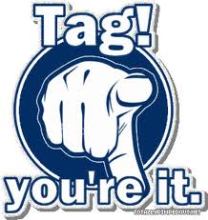So your company has been through some “ish. That’s no surprise, no company becomes great without facing the storm. But when the fan has been cleaned and the clouds start to clear, its the communicator’s job to help a company deal with what happens after the storm.
My answer is simple: The focus needs to be on the survivors.
No leader with a company that had offices in NYC’s Twin Towers for the attacks of 9/11 focused on anything other than employee health and wellness in the aftermath of the attacks. When the ash clouds covered the city, the focus was on those directly affected and survivor well being. The best leaders know that this focus should never shift – no matter how bad that last round of layoffs was – the people you chose to keep need to be reminded that they = company success. They matter. The company HAS to care.
As companies struggle to deal with the changes of a slumping economies and profits, the focus must be on those staff members who are still at work.
So how do you focus on the survivors? The rainbows that come in the aftermath of Corporate slaughter are generated from the passion and dedication of a workforce that feels cared for. Expressing care is not just in the form of yet another “feel good” email. Leaders must walk the talk. Here are some tips.
My tips:
- Keep it real:Sugar coating a situation to employees = lying = distrust = demotivated employees. Who wants those around right? Be honest about the state of the company, explain the reasons for cut backs (please ensure they are legal) and employees will be more likely to stay on the bumpy ride with you.
- Say Thank You: I’ve written a bit on this before. A recognized employee is a motivated employee which means, they’ll likely stay around. Recognition need not always be tied to money. As increasingly generation X & Y prefer flexible work environments and millennials just want time off, consider giving a day off, early dismissal on a Friday etc to recognize staff. Hey, even a hand written thank you card is awesome – who writes anymore right? Whatever you do, say thank you, make it meaningful and tie it to what matters to the employee.
- One on One 911: A leader I look up to in the energy industry makes time each quarter for one on ones with all staff in his organizational chart. A L L. Over 40 people report to this man indirectly – he meets with everyone from secretary to manager. Why? Time = interest = increased motivation = increased productivity. I have tried this approach and it works. Giving employees the time to speak through their challenges and to again, recognize their achievements one on one definitely bears the fruit of increased productivity. #tryit The August 8 2016 Harvard Business Review wrote a great article on the importance of one on ones and, of course, tips on how to make them happen.
- Train to Retain: When financial times are tough, training and travel are one of the first two line items to be removed. My views on this one are very strong. Investing in the capability of your people is some of the best money you will ever spend – just ask the now Amazon effect proof Home Depot whose founder One of the easiest line items to cut is employee training. Not investing in training is a mistake says Bernie Marcus, the billionaire founder of The Home Depot in an Inc 2009 article: “Training sometimes seems like a small thing, but it is actually the first step in empowering people to do their jobs well,” Marcus says. “No matter what an employee’s position was within the company, he or she could make a contribution by being creative or working hard. Training combined with providing employees a sense of belonging and rewarding them for results were the keys to our success.”I’ve left roles when I felt my development was not being given significant attention by the company. Yes, staff development costs is not the sole responsibility of the employer, but indeed, not all development is classroom based either. Mentoring, on the job training, hell, even exposing high performing staff to senior level meetings, etc are all great ways of developing in role. But, employer be ware, if you won’t invest in your people, another company will.
Hopefully these tips will help your company’s survivors. Know of course, that these approaches can’t live on paper or email – you will note, many require actual conversations. Help your leaders through the process by preparing key messages and talking points on your company’s way forward. Then give it a few months for things to get better. And, of course, when they do, send me a thank you for these tips. 🙂






